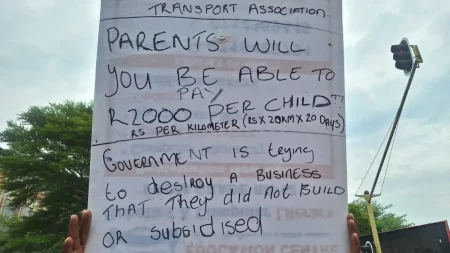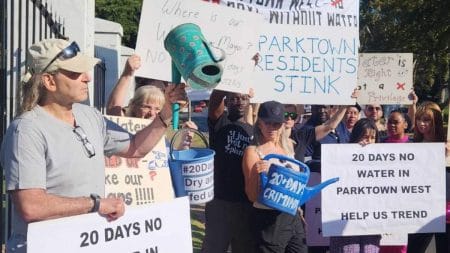Gauteng NGOs are sounding the alarm. From children’s homes to rehabilitation centers and safe shelters, these vital community pillars are facing a growing crisis: delayed government funding. Despite promises from the Gauteng Department of Social Development, the funds many depend on to keep their doors open have not arrived, pushing some organizations to the brink of closure.
This article unpacks what’s happening, who’s affected, and what’s being done to address the issue — and what the future might hold for Gauteng NGOs.
The Heart of the Community Under Threat
For decades, Gauteng NGOs have played a crucial role in supporting vulnerable groups. These include abandoned and abused children, people recovering from addiction, survivors of gender-based violence, and those living with HIV/AIDS. Often, these NGOs operate on tight budgets, relying heavily on subsidies from the provincial government.
But delays in subsidy payments for the 2024/2025 financial year have pushed many to the edge. Staff are unpaid, services are being cut back, and some facilities have even considered shutting down.
Related: Food Parcel Distribution Points in Gauteng
What the Department Says
Social Development Head of Department (HOD) Bongani Ngomane admitted in a recent interview that there have been payment delays. However, he denied the situation is as dire as described by some NGOs.
According to Ngomane, 70% of NGOs that were scheduled for Quarter 1 funding have already received their payments. He assured the public that remaining payments would be completed by mid-June.
But for struggling Gauteng NGOs, these words provide little comfort.
Why Are the Payments Delayed?
Ngomane cited non-compliance issues, particularly related to the Sexual Offenders Register, as one of the primary reasons behind the hold-ups.
“It’s very dangerous for the state to fund any organization working with vulnerable groups without proper clearance,” he stated.
However, many Gauteng NGOs argue that they have submitted all necessary paperwork, including proof of application for clearance (like the J738 form), yet they are still waiting for payment.
Impact of Budget Cuts
Adding fuel to the fire, budget cuts in HIV/AIDS programs have created further complications. Many NGOs working in this sector are still waiting to sign Service Level Agreements (SLAs), which are essential before any payments can be made.
Ngomane confirmed that R100 million from the previous financial year remained unspent and was returned to Treasury. He blamed this on legal disputes and expenditures on items unrelated to NGO funding.
This news has angered many NGO leaders, who feel the government is failing to prioritize essential services.
Real Stories from the Ground
Let’s take a look at the real impact on Gauteng NGOs:
A children’s home in Ekurhuleni, caring for 120 kids, is operating on borrowed funds. Without SLA confirmation, they cannot pay salaries or buy essentials like food and medicine.
A shelter for abused women in Tshwane reports that their electricity has been cut off due to unpaid bills, and they’ve had to turn away new cases.
These are not isolated cases. According to the NGO Crisis Committee, over 600 organizations are still awaiting payment — a figure the Department disputes, claiming it is significantly lower.
Department’s Official Position
Ngomane insists that 818 SLA payments have been processed, with roughly 600 still pending. He said some delays are due to NGOs failing to submit required documents on time.
He urged affected Gauteng NGOs to contact the Department directly if they haven’t received payment, assuring that shelters and childcare facilities are being prioritized.
However, many organizations argue that reaching the Department and getting updates is almost impossible, with emails going unanswered and phone calls dropped.
The Blame Game: Justice Department’s Role
Critics have accused the Social Development Department of passing the buck, particularly regarding delays linked to the Department of Justice’s Sexual Offenders Register. Without clearance, NGOs working with children or other vulnerable groups cannot receive funding.
Ngomane acknowledged this bottleneck but stated he could not speak for another department. He mentioned ongoing inter-governmental meetings aimed at resolving the issue, but progress appears slow.
What’s Next for Gauteng NGOs?
With the mid-June payment deadline approaching fast, time is running out. Some NGOs have already indicated they can only remain open for another few weeks without funding. The prospect of hundreds of NGOs shutting down could mean:
Thousands of children losing access to food, shelter, and care.
People battling addiction being turned away from rehab.
Women and children escaping abuse having nowhere safe to go.
For many Gauteng NGOs, reaching out to the public for donations has been a last resort — but it’s not a sustainable solution.
What Can Be Done?
Experts and NGO leaders are calling for several urgent actions:
Immediate SLA Processing: Fast-track signing and processing of Service Level Agreements, especially for high-priority organizations.
Cross-Department Collaboration: Improve communication between the Social Development and Justice Departments.
Emergency Relief Fund: Create a temporary relief fund for NGOs affected by administrative delays.
Transparency: Publish weekly updates on how many NGOs have been paid and which ones are still pending.
Most importantly, there is a call for the government to recognize the vital role that Gauteng NGOs play in the social welfare system — and to treat them as essential service providers, not optional partners.
Time for Action
The current crisis facing Gauteng NGOs is a symptom of deeper issues within the funding and compliance systems. While rules and regulations are important for safeguarding vulnerable people, they must not become roadblocks that leave those same people without support.
As the province waits to see if the government will meet its mid-June target, thousands of lives remain in limbo. For now, NGOs continue to serve communities with limited resources, relying on faith, donations, and sheer determination.
But faith alone won’t pay the bills.
Source: Gauteng NGOs Face Closure as Payment Delays Persist, Social Development Department Responds










